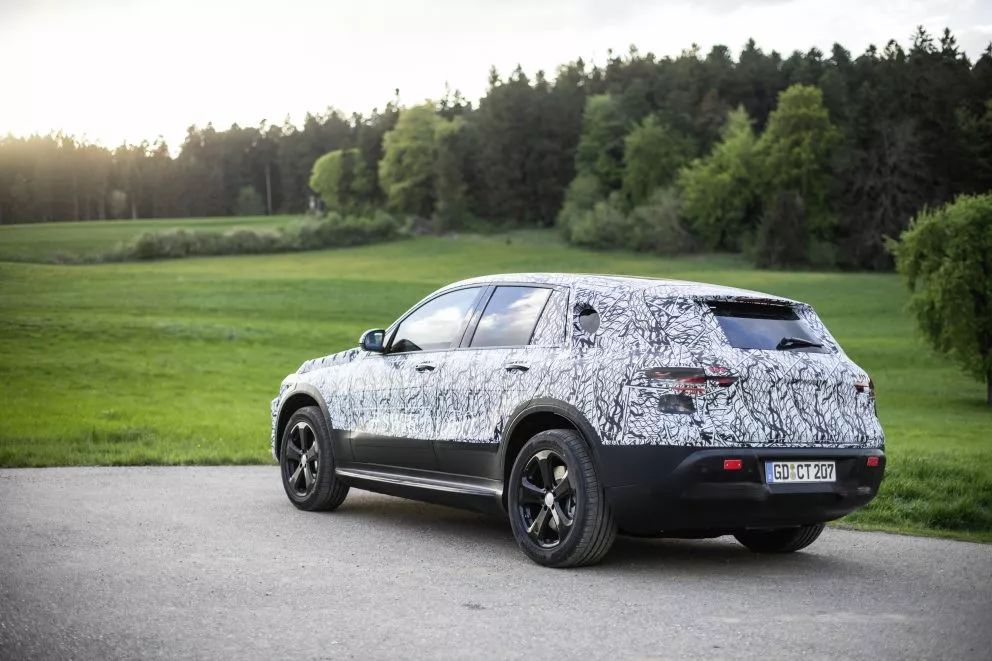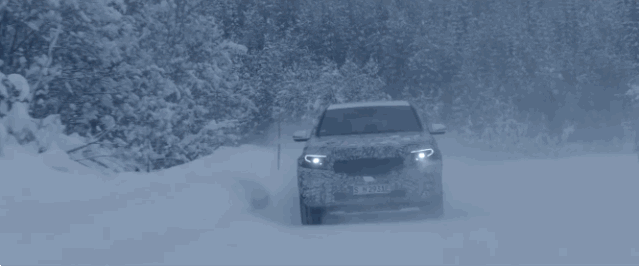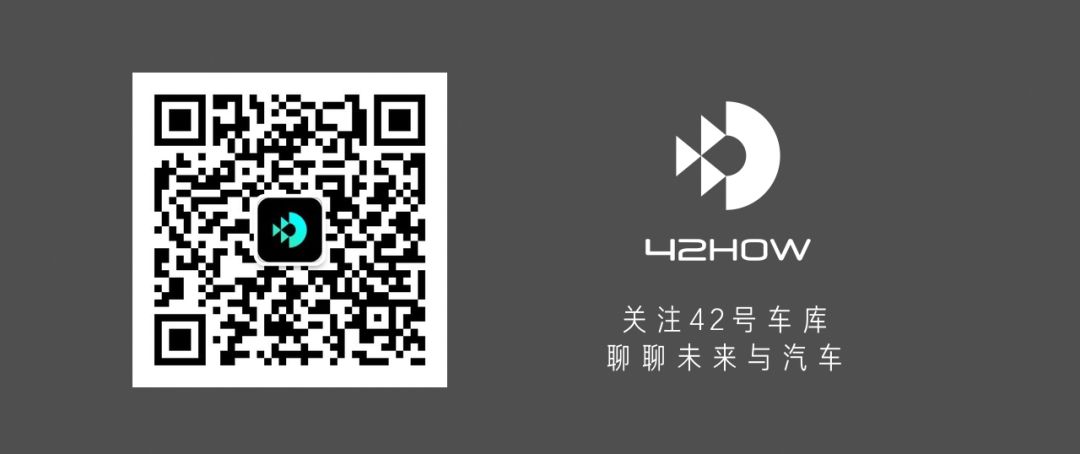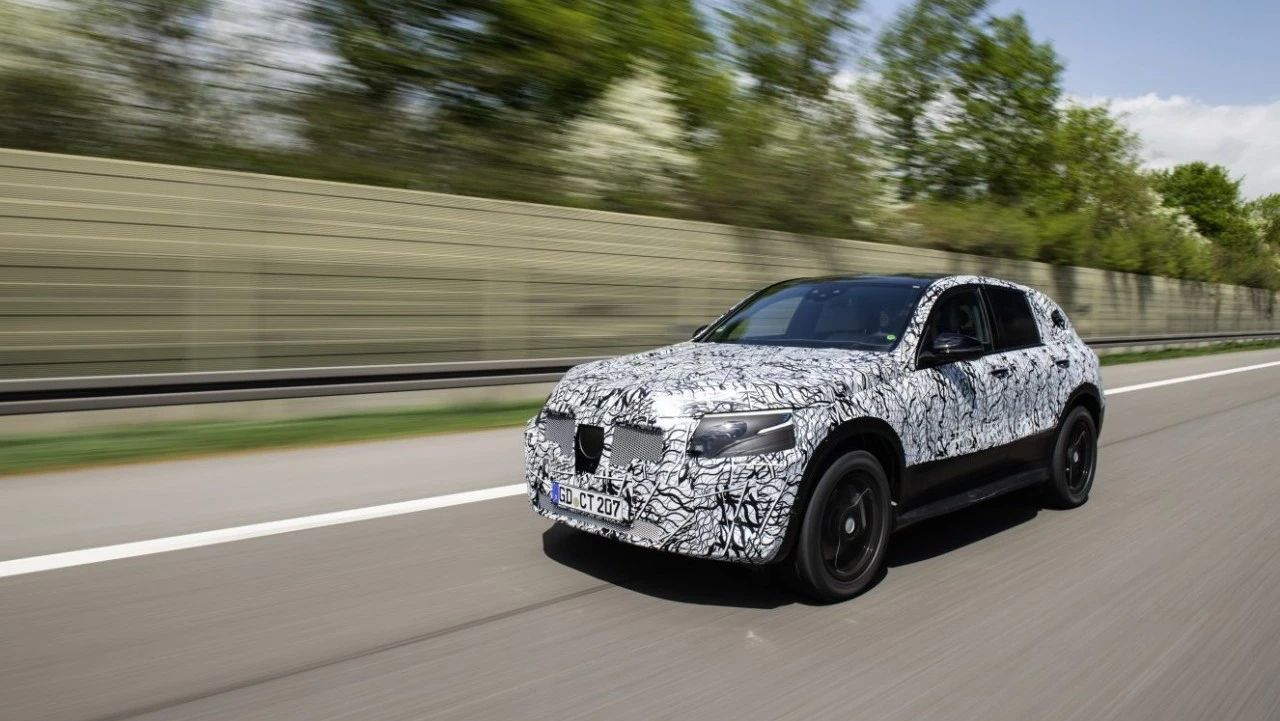In the past few days, foreign media have released spy photos of the disguised Mercedes-Benz pure electric SUV EQC. Although the disguised car photos are no longer mysterious, this time it is a high-definition version, which obviously has a deliberate intent from the official, reminding everyone not to forget about this car.

Two months ago, Mercedes-Benz officially released a winter test video of the EQC, in which Chief Engineer Michael Kelz emphasized that (although this is an electric car), this car is still a Mercedes-Benz. Just like the Jaguar I-PACE also emphasizes in its promotional materials that it is still a Jaguar, traditional car companies that make pure electric vehicles face both the problem of inheriting traditional driving genes and the possible loss of old customers.

The Mercedes-Benz EQC is equipped with a 70 kWh battery, and has a NEDC comprehensive range of 500 kilometers. Although it is not an outstanding performance, it is completely acceptable. In addition, the EQC is equipped with dual motors and has a speed of under 5 seconds per 100 kilometers. According to previous messages from suppliers, the EQC’s battery comes from SK, and was possibly the first batch of electric vehicles to use NCM 811 batteries. In other words, compared to BMW and Volkswagen, which have been observing the latest batteries, Mercedes-Benz is still more decisive and resolute.
However, in China, due to policy reasons, Mercedes-Benz, like BMW, will use CATL batteries.
On May 12th, Mercedes-Benz officially announced its cooperation with BAIC, with both sides investing RMB 11.9 billion in a new energy vehicle production base in Beijing’s Shunyi district. This includes the production of pure electric vehicles and power battery factories, with a planned annual capacity of 150,000 vehicles in the first phase. In 2019, the EQC will be produced domestically in this factory.
Compared with the grand new car manufacturing forces, the news of Mercedes-Benz’s cooperation has received a very tepid response on social media.
Mercedes-Benz has been investing in electric cars for a long time. In 2009, during Tesla’s difficult period, Daimler invested $50 million in Tesla, accounting for 9.1% of the company. By 2014, Daimler had sold all of its Tesla shares and announced a profit of $780 million. During this period, the electric versions of Mercedes-Benz’s Smart and B-Class used Tesla’s electric system.Around the same time, in April 2009, Daimler and Evonik established a joint venture named ACCUmotive, which focuses on researching and producing batteries, etc. Daimler and Evonik also established another joint venture company Li-Tec, which mainly produces battery cells and was an early supplier for Mercedes-Benz Smart. In 2014, Daimler acquired Evonik’s shares and both companies became wholly-owned subsidiaries of Daimler. However, in 2015, Daimler closed down Li-Tec and no longer produces battery cells on its own.
Currently, Mercedes-Benz has six battery factories worldwide and is the carmaker with the largest funding and scale investment among car companies excluding Tesla. Although when Daimler announced last year that it would invest $1 billion in producing electric vehicles, Elon Musk mocked them, saying they should at least add a zero.
The large investment in batteries is not only about electric cars. ACCUmotive’s business area includes home-level and industrial-level battery energy storage systems, which is very similar to Tesla’s product strategy. Mercedes-Benz can be said to be the company that understands Tesla the best. It’s hard to say which aspects Mercedes-Benz has learned from Tesla or which aspects Tesla has learned from Mercedes-Benz.
Last year, the largest Mercedes-Benz dealer in the UK tweeted asking if people would consider purchasing an electric car. It was intended as a warm-up for Mercedes-Benz’s EQ line of electric cars, but the comments overwhelmingly stated that it was too late since they had already bought a Tesla.
So, in 2019, do you think it’s still not too late?


This article is a translation by ChatGPT of a Chinese report from 42HOW. If you have any questions about it, please email bd@42how.com.
